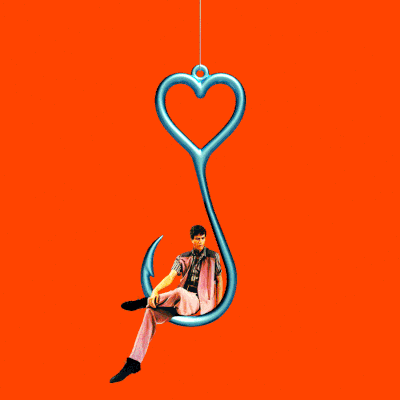
This column first ran in John Paul Brammer’s Hola Papi newsletter, which you can subscribe to on Substack.
¡Hola, Papi!
I’m almost three months out of a serious relationship. I was a bit late to the relationship game, this one being my first official non-situationship. We dated for a year and a half, with talks of moving in together, until it ended in an ultimatum (him) and a breakup text (me). This wasn’t by any means our first breakup — we had many incompatibilities — but it was the one that stuck.
My therapist and friends have been reiterating his controlling behavior (ultimatums, constant criticism, gaslighting, etc.) to help reinstate more black-and-white thinking. I’ve made a long list of all the reasons why I had to leave.
So why, then, am I still in love with this person, wondering whether he’s coping well with the breakup or if he’s (also) a total mess? Why is all the anger I should be feeling coming out as love and appreciation for someone I deeply cared for? I know I’m an empathetic person, but is my empathy currently doing me a disservice? Am I doing it all wrong?
Love,
Overly Empathetic
Hey there, OE!
There’s an interesting genre of content on the internet that centers on the strange marine creatures that emerge on land following a tsunami or hurricane. There are many YouTube videos and articles about this, many of which are fantastical in nature and veer into “urban legend” territory. Fish with three heads, crabs the size of dinner tables, fearsome beasts with no scientific names at all.
How true, and how common, is this phenomenon? I don’t know. I’m an artist, not a marine biologist (a fact that would break my sixth-grade heart; I thought I was going to explore the seas of Oklahoma). But I do know I enjoy the idea, the visual, the metaphor. As an artist, that’s all I really care about. If it sounds pretty, I can use it. It’s a much easier job, in this way, and I don’t even have to get wet.
For me, the image looks like this: A force of nature strikes, dredging up subterranean entities into the observable plane. I see it as a compelling parallel to our emotions in the wake of intense experiences. As we pick our way through the aftermath, we might find strange sentiments and emotions that we don’t quite recognize.
This is relevant to you, OE, because what you’re experiencing is to be expected. After a major life event such as a breakup, we are likely to come across thoughts and feelings that previously lurked in the depths of our minds. You might be surprised by the sight of them and wonder how they were inside you at all. The feelings coming out of you for your ex right now might not feel totally appropriate or correct, might defy convention. They might look, well, wrong.
In situations like these, I think it’s important that you not judge yourself or the emotions you’re experiencing. The truth is, there isn’t really a “right way” to feel. Are you doing it wrong? No. But I hope that, as you tread gently through the healing process, you can take this as a rare opportunity to explore yourself and to take in your findings.
I understand why your therapist and friends would want to apply black-and-white thinking here. If this person really was controlling and constantly criticizing you, they probably want to be sure you don’t try to get back together with them. Simplifying the narrative, at least right after a breakup, can be helpful, like a tourniquet that restricts movement so that you can heal properly.
But I’m not a big black-and-white thinker, either, and sometimes I just want to engage with things, even painful things, in ways that feel more dynamic. So let’s do that with the empathy that’s coming out of you right now, our strange fish. Let’s look at it and try to figure out what’s going on with its anatomy. Remember, no judgment.
Empathy can be a great thing. But, like any trait, it has its shadow side. In my experience, people with a great capacity for empathy might also have a great capacity for projection, for being overly confident in their assumptions of what someone else is feeling, because they have universalized their own experiences. You mention wondering if your partner is also a mess right now. What would knowing that give you? Is it because you deeply care about him, or would it be comforting to know that he’s also hurting, that he’s feeling what you’re feeling?
An extremely empathetic person might also prioritize avoiding conflict. They might demand a certain tenderness out of all their interactions, even in situations where conflict is necessary or would be beneficial in the long run. Sometimes, softness is a defense mechanism. In practicing fragility, we can avoid the stings and barbs that come with standing our ground. If we’re not confident in who we are, if we fear other people’s perception of us, this can be appealing.
I’m not saying any of that is you, but I’m saying that you are right to question if your behavior is healthy or appropriate, because that’s part of figuring ourselves out. As I said, there’s no “wrong way” to react to things, but that doesn’t mean we just accept everything at face value, throw our hands up, and say, “Well, I guess that’s just who I am.” Now is a great time to think of things we can change, identify things that don’t serve us, and move forward with greater knowledge.
There’s nothing wrong, OE, with being gentle or with seeking understanding with people who’ve hurt us. It does seem that, especially in the online world, these traits get derided as weaknesses or as naïveté. But I think it takes a lot of strength to forgive, to hear someone out, to try to meet them where they are, to recognize in another person the same complexity and chaos and goodness that you see in yourself.
That’s empathy at its best. But, as with any aspect of ourselves, even empathy has other sentiments lurking in its depths, frightening things, things with long teeth and multiple heads. They can unnerve us when surfaced. But a scientist would remind you that these, too, are part of the ecosystem of everything, and so instead of pretending they don’t exist, we should take this rare opportunity to observe them, study them, learn from them.
If you’re brave enough, you might just walk away with a better understanding of yourself.
Con mucho amor,
Papi
Originally published November 21, 2023.
Purchase JP Brammer’s book, Hola Papi: How to Come Out in a Walmart Parking Lot and Other Life Lessons, here.


